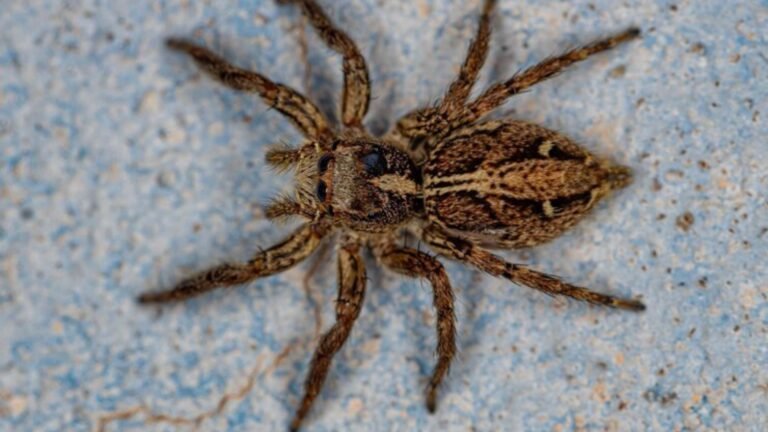Spiders are fascinating creatures that capture our imagination with their intricate webs and predatory behavior. However, one question often arises among enthusiasts and curious minds: Do spiders pee? This article delves into the biology of spiders, exploring their excretory systems, how they manage waste, and whether they urinate like mammals.
Understanding Spider Anatomy
The Basic Structure of Spiders
Before we can address the question of whether spiders pee, it’s essential to understand their anatomy. Spiders belong to the class Arachnida, which also includes scorpions, ticks, and mites. Unlike mammals, spiders have a unique body structure, including:
Cephalothorax: This is the fused head and thorax, containing the eyes, mouthparts, and legs.
Abdomen: The posterior part of the body, which houses vital organs and the spinnerets that produce silk.
Exoskeleton: Spiders possess a hard outer shell made of chitin, providing structure and protection.
The Excretory System of Spiders
Spiders do not have a urinary system like mammals. Instead, they rely on a different method of excretion. Their excretory system comprises specialized structures called Malpighian tubules, which play a crucial role in waste removal.
What Are Malpighian Tubules?
Malpighian tubules are thin, tube-like structures that extend from the spider’s gut. They serve several functions:
Waste Filtration: These tubules filter waste products from the hemolymph (the spider’s blood equivalent) and transport them to the gut for excretion.
Water Regulation: Malpighian tubules help regulate water balance by reabsorbing water and electrolytes, minimizing water loss.
How Do Spiders Excrete Waste?
When a spider consumes its prey, the food is digested in the gut, and waste products are produced as byproducts. The process of waste excretion in spiders occurs in the following steps:
Filtration: Malpighian tubules collect waste products, including nitrogenous waste, from the hemolymph.
Transport: The waste is transported to the gut, where water is reabsorbed.
Excretion: The remaining waste is expelled from the body as a solid or semi-solid substance, commonly referred to as frass.
Do Spiders Pee?
Now, let’s return to the original question: Do spiders pee? The answer is no, spiders do not pee in the way that mammals do. Instead of producing liquid urine, they excrete waste as solid or semi-solid matter.
Differences Between Spider Excretion and Mammalian Urination
The differences between how spiders excrete waste and how mammals urinate are significant:
Composition: Mammals produce liquid urine that primarily consists of water, urea, and other waste products. In contrast, spiders excrete a solid or semi-solid substance.
Process: In mammals, urine is produced in the kidneys, stored in the bladder, and expelled through the urethra. Spiders lack such structures and instead utilize their gut for waste disposal.
Water Conservation: Spiders are highly efficient in conserving water, a crucial adaptation for their survival in various habitats. Their excretory system minimizes water loss, which is particularly important in arid environments.
Spider Biology and Adaptations
Water Conservation in Spiders
Spiders are adept at conserving water, a vital adaptation for their survival, especially in dry habitats. Their unique excretory system, utilizing Malpighian tubules, allows them to minimize water loss effectively. By excreting waste in a solid form, spiders can retain more water compared to animals that produce liquid urine.
Other Excretory Products
Besides nitrogenous waste, spiders may also excrete other substances:
Silk Proteins: Spiders produce silk for various purposes, including web-building and capturing prey. Any excess silk proteins can be excreted if not used.
Environmental Contaminants: Spiders may also expel small amounts of contaminants or toxins they encounter in their environment.
Common Misconceptions
There are several misconceptions about spider excretion that warrant clarification:
Spiders and Urine: While spiders do not produce urine, some may release fluid when threatened or during mating. This fluid is not urine but a defensive mechanism or a part of their reproductive process.
Spiders and Waste Disposal: Spiders do not have a dedicated waste disposal system like mammals. Their method of waste removal is efficient and suited to their ecological needs.
Conclusion
In summary, spiders do not pee in the traditional sense. Instead, they rely on a sophisticated excretory system that allows them to filter waste and minimize water loss through solid excretion. Understanding spider biology and their unique adaptations enhances our appreciation of these remarkable creatures and their role in the ecosystem.
ALSO READ:1500 Calories A Day Dog: The Ultimate Guide To Your Dog’s Dietary Needs
FAQs
Do all spiders have Malpighian tubules?
Yes, all spiders possess Malpighian tubules as part of their excretory system.
How do spiders maintain hydration?
Spiders maintain hydration by efficiently reabsorbing water in their Malpighian tubules and excreting waste in a solid form to minimize water loss.
What do spiders excrete if they don’t produce urine?
Spiders excrete waste as solid or semi-solid matter known as frass, which contains nitrogenous waste and other byproducts.
Do spiders ever produce liquid waste?
Spiders do not produce liquid waste like mammals. However, they may release fluids in specific situations, such as during mating or as a defensive response.
Can spiders survive without water?
Spiders can survive for extended periods without direct access to water due to their efficient water conservation mechanisms, but they do require water for hydration eventually.

